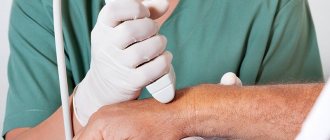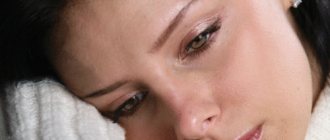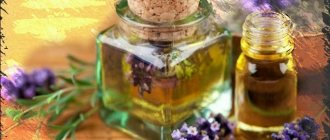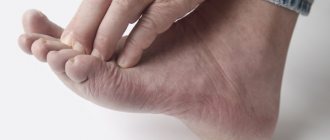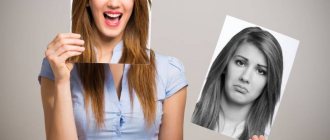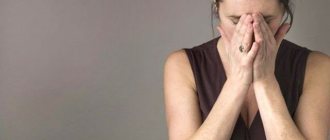People suffering from alcohol and drug addiction are unable to withstand stress. Along with the physiological characteristics of the disease, they are exposed to mental disorders that affect their mood and quality of life. Depression becomes one of the reasons why people return to intoxicating habits. Therefore, in complex treatment, it is necessary to pay special attention to psychotherapy, combining it with drug treatment for depression.
Psychotherapists at the Ultramed clinic will help you cope with emotional stress that arises in crisis situations. And also for those who cannot withstand the modern rhythm of life and resort to “folk treatment”, which entails an even more serious deterioration in well-being. It is recommended to seek help from a psychotherapist in the following cases:
- alcoholism
- addiction
- relative's illness
- death of a loved one
- loss or problems at work
- divorce or family problems
- communication problems
Call us now:
+7 (812) 454-00-50
Prices for Ultramed clinic services
No matter how much a person takes pharmaceutical drugs, it is impossible to do without consulting a professional narcologist. Only a psychotherapist is able to assess the problem (illness) and find the right way out of the current situation (including medication). An experienced specialist will help restore relationships at work and in the family, find a common language with people around you and restore the joy of a full life.
Ultramed clinic specialists provide consultation and treatment of the following mental disorders:
- long-term stress
- psychological problems
- depressive state
The result of working with a psychotherapist will be a new perspective on problem solving. A person will stop turning to alcohol to relieve stress or avoid difficult life situations. The psychotherapist will also advise the patient’s family members, tell them how to behave with him, how to restore harmony in the family and help a loved one on the path to getting rid of addiction.
Treatment of stress and depression: types of stress
The onset of a mental disorder is influenced by many factors. Situations that can traumatize the psyche arise in our lives all the time, and even strong people are not always able to resist them. Such stresses are divided into the following types:
- physical - caused by overwork and extreme external conditions
- metabolic - caused by diabetes, uremia, high blood lipids and obesity
- immune - associated with infections, against the background of a weakened immune system
- endocrine - occur with hyperactivity of the adrenal cortex and thyroid gland
It is important that stress does not become chronic. This is associated with the risk of physiological complications when stressor substances are produced in excess in the body. Lack of oxygen and nutrients negatively affects the functioning of the genitourinary system, intestines and liver. Vital organs such as the brain, heart and lungs are also affected. As a result, a person begins to get sick often.
Why panic attacks need to be treated
The syndrome may not appear too often: the interval between attacks can be quite significant, but sooner or later, the panic will return anyway, that is, nothing will go away on its own.
The consequences of this are:
- Since a panic attack can take you by surprise at any time, in any place, in public, the person suffering from the disorder begins to avoid loved ones, friends, does not go anywhere, and withdraws into himself.
- Various phobias develop - fear of open space, darkness, phenomena, i.e. anything.
- Psycho-emotional disorder leads to personality disorder.
- Self-doubt develops, which affects personality, appearance, family relationships, and professional activities.
- Sleep is disturbed, appetite is lost, and the body becomes dehydrated. As a result, the body suffers.
- Refusal to share problems causes problems in the nervous system.
It is imperative to get rid of this problem, since, judging by the above, it brings problems in social adaptation, worsens the quality of life, interferes with normal work, and negatively affects the physical and mental state.
Treatment of stress and depression: anti-anxiety medications
In the treatment of depression, drugs that differ in the active substance are used. They can be natural, plant-based or created in laboratory conditions, affecting brain receptors. An experienced psychotherapist will tell you which medicine to use in a particular case.
Antidepressants are divided according to the principle of their effect on the human body into the following types:
- stimulants
- balanced action drugs
- sedatives
Such drugs are sold strictly according to a doctor's prescription. They are used in cases where the patient experiences rapid heartbeat, anxiety, irritability and high excitability. Indications include lethargy, melancholy, apathy, suicide attempts and deep depression. Self-administration of antidepressants is prohibited.
Causes of neuritis
Local neuritis is caused by:
- local infection;
- local hypothermia;
- injury. Often neuritis develops after a nerve injury;
- compression of the nerve. Thus, neuritis of the axillary nerve can develop due to prolonged use of a crutch, neuritis of the peroneal nerve - due to working in an uncomfortable position, etc.;
- arthritis (in this case the nerve of the joint may become inflamed);
- tumor (if the tumor compresses the nerve).
Multiple neuritis (polyneuritis) can be caused by such reasons as:
- infectious diseases, including measles, herpes, influenza, malaria, diphtheria and some others;
- intoxication. Poisoning with arsenic, lead, mercury, carbon monoxide, phosphorus, bismuth and other highly toxic substances can lead to the development of various types of neuritis. The most common cause of multiple neuritis is alcohol poisoning;
- systemic diseases (diabetes mellitus, rheumatism, gout);
- avitaminosis;
- vascular disorders;
- as well as some other reasons.
Treating Stress and Depression: Natural Medicines
If the stage of the disease allows, psychotherapists recommend taking herbal medicines. They are safe and have sufficient effect for treatment. Some of them are familiar to many from home medicine cabinets and can be purchased without a doctor’s prescription:
- Valerian tincture
- motherwort
- "Negrustin"
- "Persen"
- "Novo-Passit"
Valerian tincture copes well with the stress that haunts us every day. The drug contains a plant extract that helps slow the heartbeat and calm the nervous system. Valerian relieves insomnia by providing a hypnotic effect.
Motherwort has a contraindication - it should not be taken by people with hypotension. The drug has a sedative effect, relieves stress and anxiety, but helps lower blood pressure. Motherwort is effective in treating irritability and neurasthenia.
The drug "Negrustin" contains St. John's wort extract. The effect of this herb on the human body helps to increase efficiency and raise general tone. Negrustin is used in the treatment of mild depression.
"Persen" is a drug that relieves stress and anxiety. It contains a complex of herbal extracts that have a positive effect on a person’s emotional state: valerian, peppermint and lemon balm. In addition, Persen helps overcome irritability and normalize sleep.
The composition of the drug "Novo-Passit" includes extracts of the following medicinal herbs: motherwort, St. John's wort, valerian, lemon balm, passionflower, hops and black elderberry. It has the properties of the drugs described above and copes well with stress. Taking Novo-Passit not only improves your well-being, but also has a positive effect on sleep.
Signs of a panic attack
Many people, unfortunately, do not understand that they were “visited” by a panic attack, believing that their heart suddenly “grabbed”. Indeed, the symptoms of a panic attack are similar to a vegetative crisis: rapid heartbeat, pulsation in the temporal regions, lack of air - difficulty breathing, pain in the chest and abdomen. However, medications taken “for the heart” do not improve the condition in any way.
Also, at these moments, a person begins to either sweat or feel chills, his limbs tremble, the skin becomes numb or tingles, there may be dizziness and nausea, and an upset stomach. Everything seems unreal to him, blurry, that this is not happening to him (derealization and depersonalization), he goes crazy or dies. The patient experiences incredible fear, but there are also individuals who, instead, feel sadness; they always want to cry or be aggressive.
We can talk about the presence of a mental disorder such as panic attack syndrome if attacks occur several times a day or a couple of times a month, and last several minutes or up to an hour (the average is from 15 to 30 minutes).
The attack appears unexpectedly, without any pretext, and not in some frightening or alarming situation: in a store, on the street, in a cinema, while driving a car, at home - on the sofa, and even in a dream. A person at this moment can either be among people or be alone.
It can hardly be said that all of the above is dangerous to health, but panic attacks can lead to the development of neuroses, depression, and phobias. A patient, having experienced an unexpected attack, even a very short one, several times, tries to do everything to avoid a recurrence. He becomes suspicious, loses confidence, constantly “listens” to himself, gets nervous and tries to avoid places and situations where and in what case this happened. That is, now he is afraid of just such an attack and lives in constant anxiety and phobic avoidance.
The mechanism of the onset of panic disorder is very simple to explain using an example. A completely prosperous person, usually a strong personality, living a normal life, received a very strong emotion (anger, fear, etc.) in a certain traumatic situation. The brain absorbs this experience and stores it in the unconscious. That is, the individual himself seems to have forgotten everything, but this is far from the case: the negative is securely stored in a distant corner of the memory and, over time, added to it are memories of the troubles that inevitably accompany our life, no matter how wonderful and calm it may be .
One fine day, some significant event happens, very joyful or sad (the birth of a child, the death of a parent), and it, by coincidence, becomes the last straw that overflows the vessel with memories. Then it “explodes” and the person has a panic attack.
This sudden attack worries and worries a person, even if it passed very quickly. Such a lack of understanding of what happened, anxiety, tension and excess emotions about this can provoke another attack, and then they will happen again and again. The patient is frightened by his physical and mental state at these moments, he tries not to visit those places where he was overtaken by an attack - phobias appear. As a result, panic disorder develops, and if this problem is left to chance, the consequences can be very sad.
Treatment of stress and depression: powerful drugs
In severe cases, after examination by a doctor, the patient may be prescribed potent anti-depression medications. They have a calming effect by acting on brain receptors. Some of the most common and effective drugs are:
- Nialamid
- Bethol
- Iprazide
- Trinylcypromine
- Dosulepin
- Selegilin
- Anafranil
- Incazan
These drugs are used strictly under the supervision of a doctor. They have many contraindications and side effects. When used independently, they can not only worsen the condition of a depressed person, but also cause serious damage to the body as a whole. As a result of non-prescription use of the above drugs, the patient may develop dependence (pharmacy addiction).
Treatment of stress and depression: psychostimulants and nootropics
Drugs in this category normalize the processes of thinking and remembering. They stabilize brain activity and increase its resistance to stressful situations. Treatment of stress and depression with the help of psychostimulants and nootropics can relieve the patient of lethargy, drowsiness and depression. With uncontrolled use (not under medical supervision) of drugs in this category, the following side effects may occur:
- tremor
- tachycardia
- sweating
- hypertension
- dry mouth
- headache
In modern psychotherapy, there are many names of psychostimulants and nootropics. Their use is due to the relief of depression and other mental disorders. If the disease is advanced, then you cannot do without the use of these potent drugs. In addition, psychotherapists recommend including a variety of relaxation programs in the treatment program:
- massage
- pool
- walks in the open air
Remedies for chronic headaches
Most people have experienced chronic headaches. They are called either migraines or tension headaches. When has a migraine , everything irritates him and he cannot sit still. With tension headaches, the whole head seems to hurt. The pain seems to be squeezing the head in a vice. Such pains are much more common than migraines. A person is designed in such a way that he constantly thinks about something and worries. Those who consider themselves happy have headaches much less often than those who are unhappy. Every person's brain has psychological defense mechanisms. If the number of negative emotions exceeds the number of positive ones, the system fails. An important part of protection is adequate sleep. Faith in God, love, and hobbies are also considered defense mechanisms.
Strengthening the nervous system with folk remedies helps avoid frequent headaches. How to relieve a headache? It can be removed by applying a cold compress to the back of the head. Peppermint tea with honey also reduces pain.
The following relaxation exercises relieve headaches:
- Sitting with your eyes closed, lean your head back on the headrest of the chair, you need to try to relax the frontal, temporal and chewing muscles, while you can open your mouth slightly.
- Lying on your back; consistently relax the muscles of the neck, shoulders, back, chest, buttocks, thighs, calves, feet.
- Breathe with your stomach: as you inhale, you need to inflate it, as you exhale, you need to pull it in; exhalation is twice as long as inhalation.
Such charging and discharging takes only 10-15 minutes, but the benefits from it can be enormous.
An infusion of thyme perfectly strengthens the nerves. 5 g of herb is poured into approximately 0.5 liters of boiling water and left for 40 minutes in a tightly closed container. The infusion is taken 2-3 times a day for seven days, taking two-week breaks.
You also need to take vitamin B1 . It is very important for brain function. It is found in rye bread, brewer's yeast, legumes, and liver. Green tea is a good stimulant; it does not have a negative effect on the brain. Headaches are relieved with a circular massage near the temples. Massage can be done with natural lavender or lemon oil.
A feeling of tension in the back of the head sometimes appears due to osteochondrosis , chronic myositis of the cervical muscles, and fatigue. In such cases, massage of the neck muscles helps. You can try tilting your head all the way back for a few minutes. This reduces intracranial pressure, improves brain nutrition, and often brings relief.
Remedies for headaches:
- Take valerian root, grind it and add cold water, leave for 10 hours, filter. Before use, add 3-5 drops of juice from the golden mustache leaf.
- A pre-crushed cold sheet of golden mustache is applied to the temples for 5 - 7 minutes, then lemon peel is applied to the temples.
- Fresh beet pulp helps. It is applied to the temples, alternating with the pulp from the stem of the golden mustache.
- For migraines, take 150 g of grated horseradish, 1 large leaf of golden mustache, 0.5 kg of finely chopped oranges, 300 g of sugar and 1 liter of red wine. Boil in a water bath for an hour. Give 75 ml to drink 2 hours after meals.
- Viburnum juice and fresh potato juice relieve headaches.
- Lilac leaves will help relieve headaches if applied to the sore spot.
Treatment of stress and depression: tranquilizers (anxiolytics)
When depression provokes obsessive states, severe fears and unreasonable anxiety, tranquilizers are used in treatment. They are prescribed in short courses (1-2 weeks). Long-term use of such drugs is addictive and reduces the effectiveness of drug treatment.
Tranquilizers, in addition to restoring the nervous system and improving sleep, relieve seizures and relax skeletal muscles. The drugs are contraindicated in patients suffering from glaucoma. While taking them, you should not drink alcohol or anxiolytics (the latter under medical supervision). When combined with tranquilizers, anxiolytics can cause amnesia.
Below are some side effects when taking tranquilizers:
- drowsiness
- attention disorder
- constipation
- hypotension
- slow reaction
- urinary incontinence
- weakened libido
- breathing problems (even to the point of stopping)
Modern medicine uses the following drugs to treat stress and depression of a clinical nature:
- Chlordiazepoxide
- Diazepam
- Lorazepam
- Bromazepam
- Phenazepam
- Freesium
- Alprazolam
Folk remedies for vegetative-vascular dystonia
Vegetative-vascular dystonia is in most cases a temporary disorder in the form of vascular neurosis with impaired arterial activity. Symptoms of vegetative-vascular dystonia may include fluctuations in blood pressure, spasms and relaxation of arterial walls.
Vegetative-vascular dystonia is most often observed in young women. It is accompanied by poor sleep, weakness, loss of strength and changeable mood. To combat the disease, it is recommended to get rid of bad habits .
The best medicine for vegetative-vascular dystonia is physical education . In winter you can use skis or skates, in summer you can go swimming, rowing, volleyball, football, and gardening. In the off-season, long running and swimming are suitable. Playing sports perfectly relieves fatigue and irritability; A contrast shower can be a good help. Gymnastics using swing exercises is also recommended. You should consume hawthorn , valerian , motherwort , mint, chamomile, 20-30 drops 2 times a day before meals.
The following folk remedies for vegetative-vascular dystonia are the most popular:
- Crimean rose petals - 10 g, lingonberry leaves - 20 g, bearberry - 20 g, plantain leaves - 20 g, medicinal letter - 20 g, nettle - 30 g, rose hips - 40 g, strawberries - 60 g, horsetail - 60 g. 2 tbsp. Pour 0.5 liters of boiling water over spoons of this mixture and keep in a water bath for about 30 minutes. Leave and strain. Take warm after urination, 100-150 ml per day.
- Strawberry leaves - 10 g, nettle - 10 g, white birch - 20 g, flax seed - 50 g. 2 tbsp. spoons of the collection are poured with a glass of boiling water. They insist for an hour. Take warm during the day, half an hour before meals. The course of this treatment lasts 1 - 2 months.
- White birch leaves - 4 parts, sweet clover - 2 parts, strawberry leaves - 3 parts, cinquefoil - 3 parts, flax seed - 3 parts, mint leaves - 1 part, licorice - 4 parts, violet - 2 parts, jasmine - 4 parts. 2 tbsp. Pour 0.5 liters of boiling water over spoons of prepared raw materials. Leave for 6 hours, take 20 minutes before meals.
Treatment of stress and depression at the Ultramed clinic
A large number of drug names presupposes knowledge of their properties and individual characteristics of the course of the disease. Based on the above information, you can understand that contacting a professional psychotherapist is the best way to find the right medication to treat stress and depression. Do not self-medicate - trust the professionals and do not delay visiting a doctor.
If you experience anxiety, nervous breakdowns or apathy, you should immediately contact a specialist to avoid the serious consequences of prolonged depression. Our clinic employs experienced psychotherapists who will help you get rid of stress and depression, even if it has become clinical. At the clinic, you will receive comprehensive treatment that takes into account the condition of internal organs affected by the influence of prolonged experiences and rapid heartbeat.
Call us and we will answer all your questions - the Ultramed clinic hotline is open around the clock, seven days a week, seven days a week!
Who to turn to for help and how to diagnose
Poor awareness among people about panic disorder leads to the fact that some consider it completely frivolous, while others consider it a dangerous incurable mental illness. Therefore, they believe, you should not go to doctors: in the first case there is no need, and in the second the main role is played by the fear of being branded as mentally ill. Both opinions are completely unfair: it is both very serious and completely controllable and treatable. A competent approach will allow you to successfully and fairly quickly get rid of the problem.
First of all, you need to understand that you need to contact only experienced, highly qualified specialists - a psychiatrist, who will develop treatment tactics based on the causes of a panic attack, because they are the ones that need to be eliminated. The doctor will determine why the patient’s nervous system could not withstand the load and malfunctioned in the form of panic manifestations.
The doctor must carefully examine the patient to establish an accurate diagnosis and study the symptoms. The selection of therapy is made based on the characteristics of the patient’s body on an individual basis. The work of a professional consists not only of recommendations and prescribing certain medications, but also of carefully monitoring the progress of treatment and, if necessary, its correction.
As for the psychologist, such a specialist is useless in this case - he is not able to identify the causes of the pathological disorder and prescribe medication and psychotherapeutic treatment, which, in case of getting rid of this problem, are necessary. The picture is the same with sorcerers, psychics and “wise” advisers from the Internet - they will only bring harm to the patient, which is then quite difficult to correct, aggravating his not the best condition.
The psychiatrist, first of all, will seek advice from a cardiologist, therapist, endocrinologist, neurologist, or psychotherapist. This is necessary to exclude the presence of somatic and serious mental illnesses.
It should immediately be noted that a therapist in ordinary clinics does not have the opportunity to carefully and competently examine the patient. In addition, long queues and the nervous atmosphere in them often serve as an impetus for another panic attack, and the person generally loses all desire to be treated.
In specialized paid clinics, such a picture is not observed: any person who comes here receives great attention. In addition, it is usually comfortable; highly qualified doctors work here, “armed” with advanced techniques and equipment for accurate diagnosis and successful treatment. The latter implies the use of pharmacology, psychotherapy, physiotherapy in combination, as well as changing the usual lifestyle.
The attitude of the patient himself to the treatment of panic attacks is also important - he must understand his problem, that this, in essence, is not a disease at all, but a sign of a disorder of higher nervous activity. For a successful result, you need the desire and good will of the patient, compliance with all the doctor’s recommendations.


